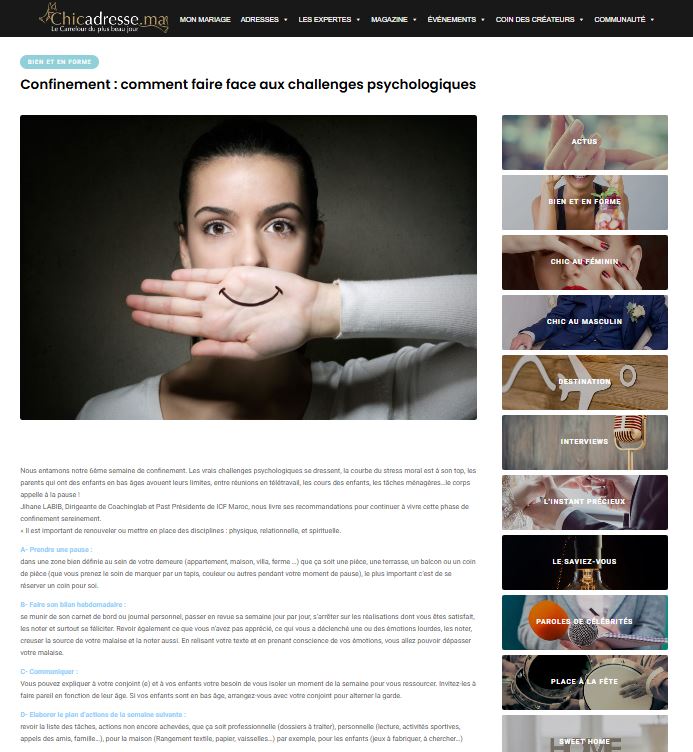As we enter our sixth week of confinement, the psychologicaltoll becomes more evident. Mental stress is peaking, and for manyparents—especially those with young children—the balance between remote work,homeschooling, and household chores is becoming overwhelming. The body and mindare both crying out for a pause.
Jihane Labib, leadership coach and founder of CoachingLab, sharespractical and heartfelt strategies to navigate the emotional challenges ofconfinement, maintain your inner balance, and reclaim a sense of control.
Psychologicalvs. Physical Confinement
True confinement isn't only about closed doors. It's about mentaloverload, emotional fatigue, and the loss of boundaries between personal,professional, and family life. That’s why developing inner discipline andmindful structure becomes essential.
5Self-Leadership Habits to Sustain Psychological Well-being During Confinement
A. Take a RealPause – In a Defined Space
Whether you live in an apartment, a villa, or a farmhouse, designate a “pausezone” in your home. It can be:
- A specific room or a corner
- A balcony, terrace, or even a spot marked with a rug or different color
This is your space. Own it. Return to it. Reclaim calm.
B. ReflectWeekly – Journal Your Emotional Landscape
Take out a notebook or digital journal and review your week day byday:
- What achievements are you proud of? Write them down and celebrate yourself.
- What moments triggered stress or discomfort? Identify them and explore their root causes.
- By writing and re-reading, you begin to process and release heavy emotions.
C. CommunicateYour Needs – And Encourage Others to Do the Same
Let your spouse and children know that you need time to recharge—andinvite them to do the same. If your kids are too young to understand, arrangewith your partner to alternate care duties. This emotional transparencyfosters mutual support and respect.
D. Plan theWeek Ahead – With Flexibility and Intention
Make a list of pending tasks, across all areas:
- Professional (emails, reports, deadlines)
- Personal (exercise, reading, calling friends)
- Household (organizing drawers, paperwork)
- Parenting (craft projects, new games)
Even a simple, actionable plan brings clarity and reducesanxiety.
E. Renew YourRituals – Daily Acts of Grounding
Rituals help restore rhythm and stability. Some ideas:
- Turn prayer or meditation into a daily moment of self-reflection.
- Explore YouTube workouts, yoga, or mindfulness as a family.
- At night, make your bedroom a haven: read together, share jokes, reconnect with your partner—emotionally and lovingly.
Final Thoughtfrom the Coach
“I wish you a delicious confinement,” says Jihane Labib.
“Yes, delicious—because with the right mindset and routines, this experiencecan become a gateway to growth, love, and deeper self-awareness.”


